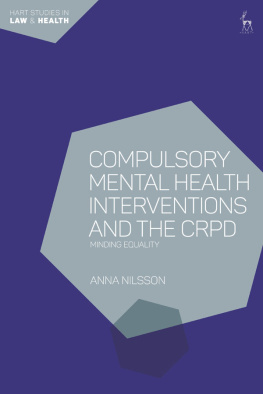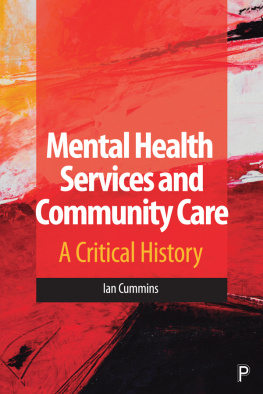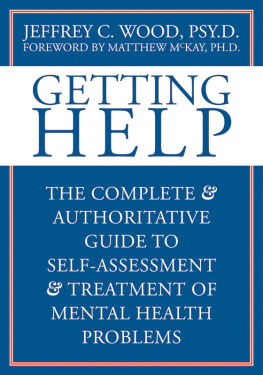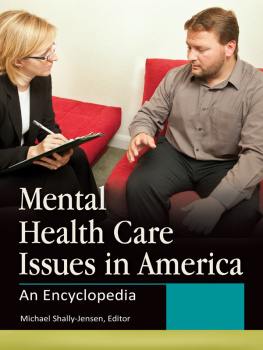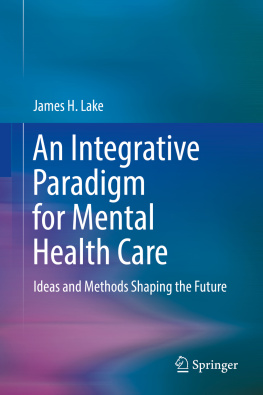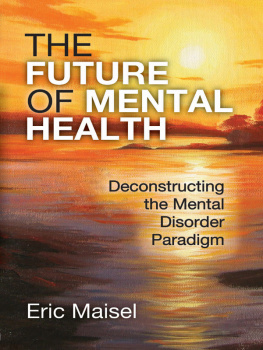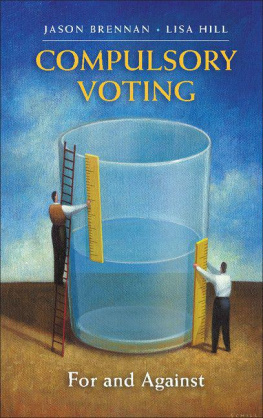CONTENTS

COMPULSORY MENTAL HEALTH
INTERVENTIONS AND THE CRPD
This book delineates the scope of permissible compulsory mental health interventions under the Convention on the Rights of Persons with Disabilities (CRPD).
The initial impetus for this study was provided by a conflict between two competing positions within the current debate over the future of coercive psychiatry. According to one position, defended by the CRPD Committee, among others, compulsory mental health care necessarily violates the prohibition of discrimination. According to the competing position, supported by the vast majority of states, compulsion is sometimes necessary to protect health and life and, if coupled with appropriate legal safeguards, it is lawful under such circumstances. This book disputes both positions and argues that the scope of permissible compulsory care can be identified using proportionality reasoning.
Drawing on the work of Robert Alexy, it develops a framework for proportionality assessments within the context of non-discrimination. The framework can assist decision-makers to design principled and evidence-based mental health care regimes. This book thus provides a new way forward for states parties looking to reform their mental health care regimes and to improve compliance with the CRPD. It will appeal to academics and practitioners engaged in mental health reform in the post-CRPD era.
Hart Studies in Law and Health
Hart Studies in Law and Health aims to publish the best existing and upcoming voices in scholarship on law and health. Viewing law as a broad church, the series welcomes a range of methodologies from the doctrinal to the critical and including regulation and governance, and law and ethics approaches.
In memory of my father Bengt
Compulsory Mental
Health Interventions
and the CRPD
Minding Equality
Anna Nilsson

M any people have in different ways contributed to this book, and for this I wish to express my heartfelt gratitude. Thank you. Among all of you, I want to mention a few. First, I want to thank my excellent supervisors, Gregor Noll, Anna Bruce and Lena Wahlberg for their invaluable support and guidance throughout the research project that forms the basis of this book. Gregor, thank you for thoughtful comments on my work, for your intellectual generosity, and for believing in me as a legal scholar. Anna and Lena, your careful readings, intelligent suggestions and moral support were instrumental to the completion of my doctoral thesis. Second, I want to express my sincere gratitude to Peter Bartlett and Julian Rivers for your astute comments on earlier versions of this manuscript and for your encouragement to take my analysis one step further.
Among my colleagues and friends at the Faculty of Law in Lund, I am indebted in particular to Ulf Linderfalk, Britta Sjstedt and Martina Axmin. Thank you for being such great colleagues! I also wish to thank Moa Kindstrm-Dahlin, my dear colleague at Uppsala University with whom I share, among many things, a strong interest in mental health law. Our discussions made this journey so much more enjoyable. I would also like to acknowledge Tim Carter, who helped me to improve the language of this book.
My final words of gratitude go to my much-loved family; to my partner Rickard, my daughter Siri, my son Vilhelm, and to my mother, Carina.
Anna Nilsson,
July 2020
I magine that you are a clinician working within mental health care. A 54-year-old woman, Nancy, is brought to your hospital by her son after she accidently started a small fire at home because she was smoking in bed. The son tells you that Nancy has been diagnosed with bipolar disorder, that she has trouble sleeping at night, and that she has unpredictable mood swings. He is worried about his mother, who is recently divorced and lives alone. You examine Nancy, who tells you that she is not feeling well. She is tired and struggles with feelings of hopelessness. When you try to discuss treatment options with her, she is pessimistic. She does not think any of the treatments you propose will help her. She has tried medication before and dreads the side effects. She just wants to go home again. You believe medication is absolutely necessary to prevent her condition from worsening. You explain your assessment to her, and she nods at the information but insists on leaving the hospital. If she leaves, the chances of her sticking to any course of treatment you prescribe would be very slim. As a result, there is a risk that Nancys condition will deteriorate further, and that her basic needs, such as food and hygiene, will not be met. The facts of her case also indicate that she is at an increased risk of suicide. The decision is up to you: should you respect her wish to leave, or intervene against her will?
In making such a decision, several interests are at stake: the protection of health and life, and respect for personal liberty, integrity and autonomy. On the one hand, Nancys medical condition is serious. She has lost weight, has no interest in taking care of herself, and does not sleep at night. Without treatment and support, her health and life are at risk. Her behaviour also indicates that she is not taking into account the safety of others. Smoking in bed jeopardises not only her own safety but also the safety of her neighbours. She lives alone in a two-room apartment, and if the son had not come by, the fire might have spread to other apartments. This speaks in favour of intervention. On the other hand, Nancy insists on leaving the hospital. She tells you that she has been hospitalised before. It helped a little, but not for long, and she dreads having to go through it again. The idea of being locked up causes her a great deal of stress; it makes her feel anxious and helpless. She is equally negative about the prospect of taking medication. She had, in the past, been on medication for long periods of time, but she stopped taking it because of its unpleasant side effects (severe weight gain, drowsiness, blurred vision and tremors). She does not want to start again; the side effects are too painful. You consider her response to your treatment proposals to be misguided. You are not denying that the treatment in question has unpleasant side effects, but you believe that the prospect of it curing Nancy, or relieving her symptoms, more than makes up for these drawbacks. Nancy, however, disagrees, and she appears to take in and understand the information provided to her about the potential benefits of hospitalisation and medication. In fact, her rejection of these is understandable in light of her appraisal of the pros and cons of inpatient treatment. The disagreement between you and the woman before you can be said to hinge on the different values the two of you attach to the potential benefits and costs of psychiatric care.
The question of whether to intervene against an individuals expressed wishes has been at the heart of debates in recent decades concerning the design of mental health care regimes, and it was central to the negotiation process of the UN Convention on the Rights of Persons with Disabilities (CRPD).is acceptable in the context of mental health care. This book explores this new vision for mental health law, which has equality and non-discrimination as its core standards. It analyses the normative content of the prohibition of discrimination in the CRPD and discusses the implications of the obligation, laid down in the treaty, for signatories to ensure that their domestic mental health legislation allows people with psychosocial disabilities to enjoy liberty, integrity and legal capacity on an equal basis with others.

